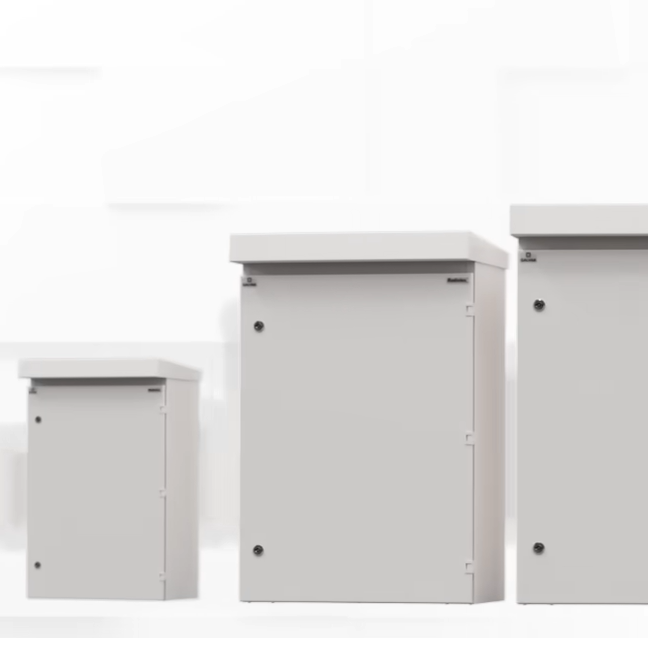
The ideal enclosure for electrotechnical applications – what to look for when choosing one
Electrotechnical enclosures are used in a wide range of industrial sectors, including automation, power generation and telecommunications. In each of these sectors, reliability, resistance to weather and mechanical shock, and ease of installation are crucial. Choosing the right enclosure has a direct impact on the reliability and durability of the systems, so it is important to consider a number of criteria when making a decision. Read on for some important criteria for selecting an enclosure.
- Tightness
A high degree of housing tightness is one of the most important criteria. The enclosure must provide full protection against moisture, dust and other contaminants that can damage internal components. Tightness is particularly important in dusty environments, such as factories, and where contact with water may occur. - Corrosion resistance
In the electrical industry, many installations are exposed to harmful atmospheric conditions. In such cases, the corrosion resistance of the enclosure is crucial. The choice of materials, such as stainless steel, aluminium or special anti-corrosion coatings, significantly increases the durability of the enclosure. Galvar enclosures, thanks to adhesive technology, eliminate the risk of corrosion at joints, making them extremely durable in harsh environments.
- Mechanical shock resistance
Another important criterion is the resistance of the enclosure to mechanical impacts and other physical damage. Electrotechnical enclosures, particularly in industrial environments, are exposed to shock, impact or vibration. Choosing materials with high shock resistance, such as steel or composites, increases the reliability of the systems. - Thermal insulation and heat dissipation
Electrotechnical enclosures often house heat-generating equipment, so it is important that the enclosure provides adequate thermal insulation and the ability to dissipate excess heat. In the case of control cabinets and electrical switchgear, proper cooling of components is crucial to their long-term reliability. Technologies such as heat exchangers, active cooling systems or vents are used in enclosures. - Protection against UV radiation and chemicals
For outdoor installations, the enclosure must provide protection against UV radiation, which can lead to material degradation, as well as against aggressive chemicals. Suitable materials and anti-corrosion coatings (e.g. powder coating), protect enclosures from harmful environmental factors. In industries such as chemicals, pharmaceuticals and petrochemicals, where enclosures are exposed to chemicals, chemical-resistant materials are a must. - Ergonomics and ease of installation
An enclosure should not only be durable, but also easy to install and service. Well-designed enclosures allow quick and convenient access to internal components and facilitate both installation and maintenance of systems. Consideration should be given to modular designs that can be adapted to the specific requirements of the installation and to solutions that allow quick access without having to dismantle the entire enclosure.
A better enclosure – traditional welding vs Galvar
Traditional electrotechnical enclosures are made using welding, which, although widely used, has its limitations. Welded areas are more prone to corrosion and this requires additional protective coatings. Welding limits flexibility in the design of enclosure shapes and sizes, which is important for customised solutions.
Bonding technology, such as that used in Galvar enclosures, eliminates these problems. Bonding allows for lighter and more flexible structures that are also more robust. Enclosures made using this method have better sealing and corrosion resistance, and are simpler to assemble, reducing installation time.
Choosing the ideal enclosure depends on many factors. In particular, we suggest looking at Galvar enclosures that meet standards of protection, safety and durability. Invest in solutions that guarantee the long life and reliability of your electrotechnical systems.
The corrosion resistance and ease of installation that make them an exceptional choice in the market.


 en
en  PL
PL  DE
DE  LT
LT  SV
SV  FR
FR  ES
ES  HU
HU  NO
NO  DK
DK  FI
FI  RU
RU 